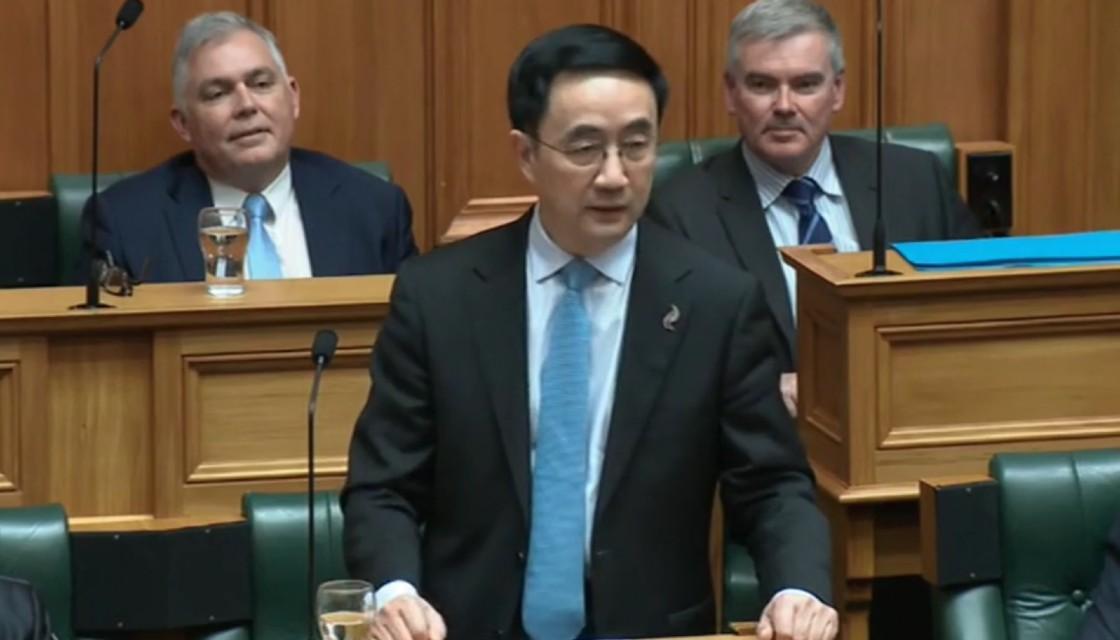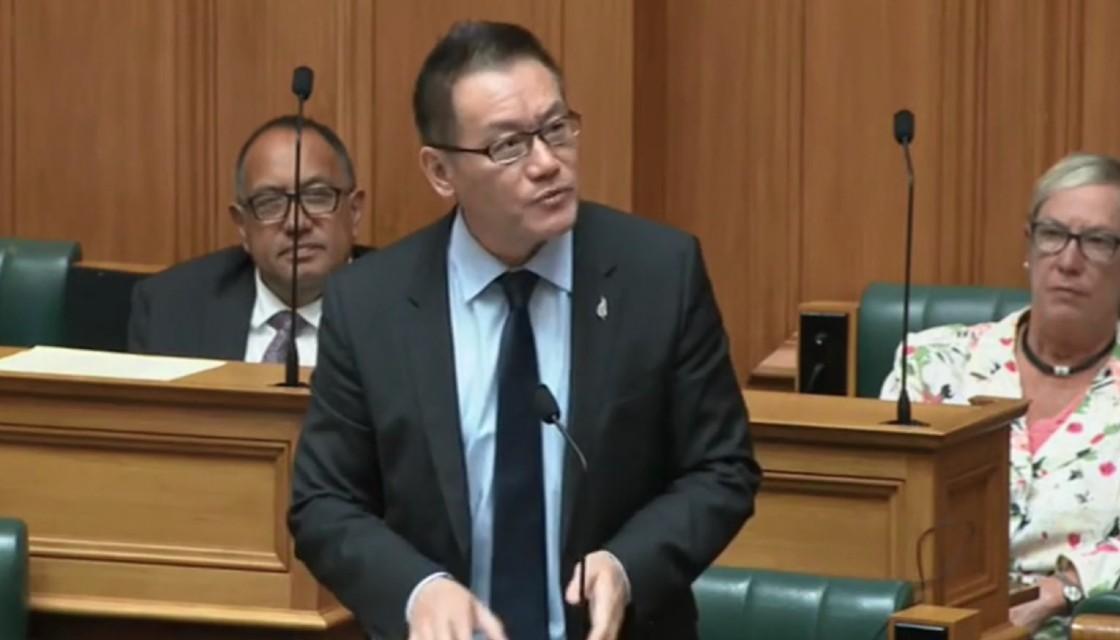Jian Yang, the National MP who once admitted to training Chinese spies, has hit out at "conspiracy theories" and "speculation" about his loyalty to New Zealand, in his final speech in Parliament.
Yang, 58, said he's felt "extremely privileged" to be able to participate in New Zealand law-making since becoming an MP in 2011, but he said it's been tough facing questions about his loyalty to the country.
"There have been speculations about my loyalty to New Zealand, and we have seen various conspiracy stories," Yang said in his valedictory speech on Wednesday.
He spoke about accompanying former National leader Simon Bridges to China in September 2019 and how he felt bad that his boss was forced to defend himself for meeting with China's head of 'secret police'.
"We told our Chinese host that we would like to meet a Politburo member in Beijing. A few days before the meeting, we were told that Mr Guo Shengkun would meet the delegation," Yang said.
"I did not really know Mr Guo's portfolios. So I did a quick search online and discovered that he was in charge of justice and law and order."
The Central Politburo of the Communist Party of China is a group of 25 people who oversee the party, and it's led by general-secretary Xi Jinping, the President of China.
"Back in New Zealand, conspiracy theories, however, claimed that I had organised a meeting between the National Party leader and the head of the Chinese Communist Party's secret police," Yang said.
"Simon, I'm sorry that you had to defend yourself--things went slightly off the plan."
- Spy within Five Eyes describes NZ's political system as 'compromised' by Chinese influence
- POLITICS Todd Muller defends Chinese Communist Party-linked National MP Jian Yang
- New Zealand MPs told to delete TikTok over security concerns
- Pro-China ad campaign in Chch newspaper worries expert
- CHINA Suspension of Hong Kong extradition treaty not interference from New Zealand
Yang also defended himself for refusing to comment to English media when approached. He was recently criticised in a TVNZ report over refusing an interview with a Q&A journalist for more than two years.
"I only declined the media requests - English or Chinese - whose sole purpose was to question my loyalty to New Zealand. I have made it very clear that I have been loyal to New Zealand. I do not need to explain again."
Yang isn't the only Chinese-New Zealand MP to have his loyalty questioned.

Raymond Huo, in his final speech as a Labour MP on Tuesday, said he found it "bizarre" being accused of promoting the Chinese President's agenda in a paper by Canterbury University Professor Anne-Marie Brady.
n her 2017 paper Magic Weapons, Brady said Huo has close connections to Chinese authorities, and highlighted how Huo translated Labour's 2017 campaign slogan 'Let's do this' into something along the lines of 'roll up your sleeves' or 'work hard'.
Huo, hit back at Brady in his speech, "The only problem is that it happened to be used by China's President at some stage. Therefore, I was accused of promoting their agenda--how bizarre."
Questions about Yang's loyalty made headlines across the globe in 2017 after he admitted to teaching students English at the People's Liberation Army-Air Force Engineering College, a Chinese military university.
He also admitted to spending time at the Luoyang Language Institute, run by the Third Department, which carries out spying activities for China.
Yang did not shy away from his past in his speech, reflecting on when he was approached by National Party president Peter Goodfellow to run for Parliament.
"I realised that my military academy background in China could be an issue, so I brought up the issue with the party leadership in my meetings with them," Yang said.
"I also clearly named Air Force Engineering University and the People's Liberation Army Luoyang foreign language institute in my list candidate application form.
"I have been transparent to the party from the very beginning."
Yang, who came to New Zealand from China in 1999, said he gave up his Chinese citizenship in 2004, and now describes himself as a "Kiwi made in China".

But Yang was apprehensive about becoming an MP.
"On 8 August 2011, I received an unexpected call from National Party president Peter Goodfellow inviting me to stand in the upcoming general election. The first sentence I said to Peter was, 'Thank you, but I have no interest'," he said.
"At that time, I was associate dean of the Faculty of Arts at the University of Auckland. Jane was very much satisfied with our life and would hate being the wife of a politician. Her position was very clear: I would have to choose between her and politics."
Yang said in the end, he was "touched" by the "sincerity" of the National Party and said he sought advice from a New Zealand politics expert who told him to go for it.
Both Yang and Huo say they are proud to have made New Zealand their home.
Huo said many Kiwi-Chinese people have made New Zealand their whānau and are "not even interested" in geopolitics, so "please leave them alone".
Yang said he's proud of his Chinese heritage, but "most importantly" is "privileged" to be able to live in New Zealand, describing it as a "truly great" country.
"It's time for me to put down politics and enjoy life with my family. History will be the best judge of my nine years in the New Zealand Parliament."





